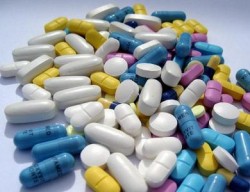Prescription Drug Abuse Signs & Symptoms
Legal, though they may be, prescription medications carry the highest addiction rates compared to other drugs, according to the National Institute on Drug Abuse. In many cases, a person starts taking these drugs to treat a condition and ends up unable to stop taking them. In other cases, someone just experimenting for fun starts taking pills more and more frequently without really knowing an addiction is forming.
Prescription drug abuse rates have seen a threefold increase within the past 10 years. While some people may be more at risk of becoming addicted, most anyone can become physically dependent on a prescription drug’s effects. Signs and symptoms of prescription drug abuse can take different forms depending on the type of drug involved.
Prescription Drug Abuse

There will be signs to help you determine if someone is abusing prescription drugs.
Many types of prescription drugs have psychoactive effects along with their intended treatment effects. Psychoactive effects directly alter chemical processes in the brain in much the same ways illegal drugs, such as heroin and cocaine do. These effects account for why someone would choose to take more than the prescribed dose or use them for recreational purposes. Prescription drug abuse can happen to anyone when prescription guidelines are not followed.
The types of prescription medications most likely to be abused include:
- Opioids
- Sedatives and anti-anxiety medications
- Stimulants
All of these drug types cause the secretion of dopamine chemicals in the brain. Dopamine, a vital neurotransmitter chemical, helps regulate most every major chemical process in the body. Dopamine secretions also account for the feelings of euphoria a person experiences when taking a prescription drug.
Prescription drug abuse effects gradually alter the brain’s ability to secrete dopamine on its own. When this happens, the brain requires more of the drug to function normally. Within a short period of time, the brain becomes dependent and eventually addicted to the drug’s effects.
Prescription Drug Abuse Signs
According to the Mayo Clinic resource site, prescription drug abuse signs and symptoms can vary depending on the type of drug a person uses. Opioids work as mainly pain-relief medications. Signs of opioid drug abuse include:
- Confusion
- Sweating
- Constipation
- Poor coordination
- Slow breathing rates
- Low blood pressure
When taking sedatives and anti-anxiety medications, signs of prescription drug abuse include:
- Involuntary eye movements
- Drowsiness
- Dizziness
- Confusion
- Poor decision-making abilities
- Unsteady gait
Signs of stimulant drug abuse include:
- Unusually aggressive behavior
- Weight loss
- Irritability
- Restlessness
- Abnormal heartbeat
- High blood pressure
- Insomnia
Risk Factors
While just about anyone can get addicted to prescription medications when abused, certain risk factors tend to increase the odds of becoming addicted. The most commonly known prescription drug abuse risk factors include:
- People under high levels of stress in daily life
- People with severe and/or chronic pain conditions
- People suffering from psychological disorders
- People with histories of sexual abuse
- People raised in dysfunctional family environments
As different types of prescription drugs produce different types of effects, the type of “high” a person prefers often dictates which types of prescription medications will pose the greatest risk for addiction.
 The Difference between Prescription Pain Pill Abuse Versus Misuse and When to Consider Treatment -
Whether you abuse or misuse your prescription, there is a risk of dependence and addiction.
The Difference between Prescription Pain Pill Abuse Versus Misuse and When to Consider Treatment -
Whether you abuse or misuse your prescription, there is a risk of dependence and addiction.  I Caught My Friend Snorting Suboxone to Get High; Now What Should I do? -
If someone you care about is snorting Suboxone, it's imperative that you help them seek treatment immediately.
I Caught My Friend Snorting Suboxone to Get High; Now What Should I do? -
If someone you care about is snorting Suboxone, it's imperative that you help them seek treatment immediately.  Telltale Symptoms of Opium Abuse -
If a person becomes shady, withdrawn, and uninterested in things they previously enjoyed they could be abusing opium. This can lead to anxiety, irritability and more.
Telltale Symptoms of Opium Abuse -
If a person becomes shady, withdrawn, and uninterested in things they previously enjoyed they could be abusing opium. This can lead to anxiety, irritability and more.  How to Talk to Your Doctor About Pain Pill Abuse -
It's important to inform your doctor about your concerns regarding your prescription so that they can prevent any potentially dangerous outcomes of pain pill abuse.
How to Talk to Your Doctor About Pain Pill Abuse -
It's important to inform your doctor about your concerns regarding your prescription so that they can prevent any potentially dangerous outcomes of pain pill abuse.  Potential Consequences of Long Term Opiate Use -
Learn the consequences of opiate abuse so you can stop the cycle and prevent these dangerous side effects from occurring.
Potential Consequences of Long Term Opiate Use -
Learn the consequences of opiate abuse so you can stop the cycle and prevent these dangerous side effects from occurring.